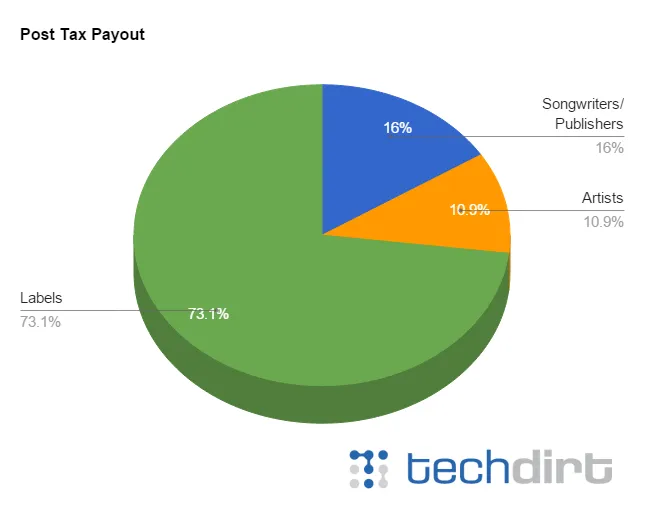Crypto and blockchain will take over the music industry in the next few years

In another post, I talked about how crypto is taking over sports, but that is not the only industry that is being disrupted by that technology. Cryptocurrency and blockchain - the technology behind it - are transforming many aspects of our society. As this movement gains traction and attention, the tendency is that even more industries get impacted by this transformation.
The music industry is a great example of that. It has been going through this transformation process for some time now, but recently its connection with crypto has become more evident due to initiatives such as the recently announced partnership between Binance and the GRAMMY Awards.
Similar to what it did with FIFA and the World Cup, Binance now moves onto the music industry by becoming the first cryptocurrency exchange partner of the 64th GRAMMY Awards. It's way too soon to tell what impact or effects this will have on crypto adoption, but regardless of that, this is a historic milestone as it is the first time a crypto firm collaborates with the mainstream music industry.
Record labels and the music industry
Historically, the biggest chunk of the money generated in the music industry ended up in the pockets of the record labels. They were the showrunners, and for a long time, the only way of really "making it" in the music business was by signing a deal with a major label. They had the necessary infrastructure to record an album, but, more importantly, they had the network and the relationships that allowed them to control distribution, becoming very expensive and unavoidable "middlemen" that could eat up as much as 80% of the revenue generated by their artists.

When the internet came into the picture with file-sharing services such as Napster, people thought it was the end of record labels, but then, a few years later, streaming platforms entered the scene and put labels back in charge because they got to keep control of distribution and, even better, they got to monetize a massive catalogue of older records that were gathering dust on their shelves.
Enter cryptocurrency

One thing that crypto often does very well is removing middlemen, and that's why it can have such a huge impact on the music industry. Smart contracts and NFTs can solve many of the current issues of the centralized model we have. Even though they are still misunderstood and often used in the worst ways you can imagine, the technology behind them is solid and, if implemented properly, can eliminate problems such as unfair royalties distribution, for example.
Transparency is also a great benefit. Since the blockchain is public and accessible by anyone, artists can have total visibility of how fans or third-party platforms interact with any asset they put on the network, making it a lot easier to make sure they are getting their share of the pie.
This is not only theory, by the way, blockchain adoption in the music industry is still in an early stage, but there are many companies already that are using the technology to improve the relationship among artists, creative work and fans. One example is eMusic, a company that uses blockchain and cryptocurrency to help musicians distribute their work and track fan interaction with their music so they can be fairly compensated.
Cryptocurrency will be a great help for artists, but fans can also benefit immensely from this technology. Imagine, for example, if you could own a percentage of a song or record and get a share of the revenue every time it's streamed or sold? If that sounds far-fetched, know that Rising Star, a music-themed play-to-earn game on the Hive blockchain is already doing something very similar to that, where musicians can mint their songs as NFTs and players can stake cryptocurrency on them and earn a share of every sale.
With a model like that, it's not hard to imagine that fans would become avid promoters of their favourite artists and songs because it would be in their best interest that the artist is heard by as many people as possible, given that it would financially benefit them (the fans) directly.
Final thoughts
Cryptocurrency and blockchain are going to revolutionize the music industry. The decentralization process that crypto promotes will decrease the dependency on record labels and give artists and fans more power and ownership of the assets generated in the industry.
This is only starting, and there will be many challenges on the way, but it's also inevitable, and with time, people will start to see that.